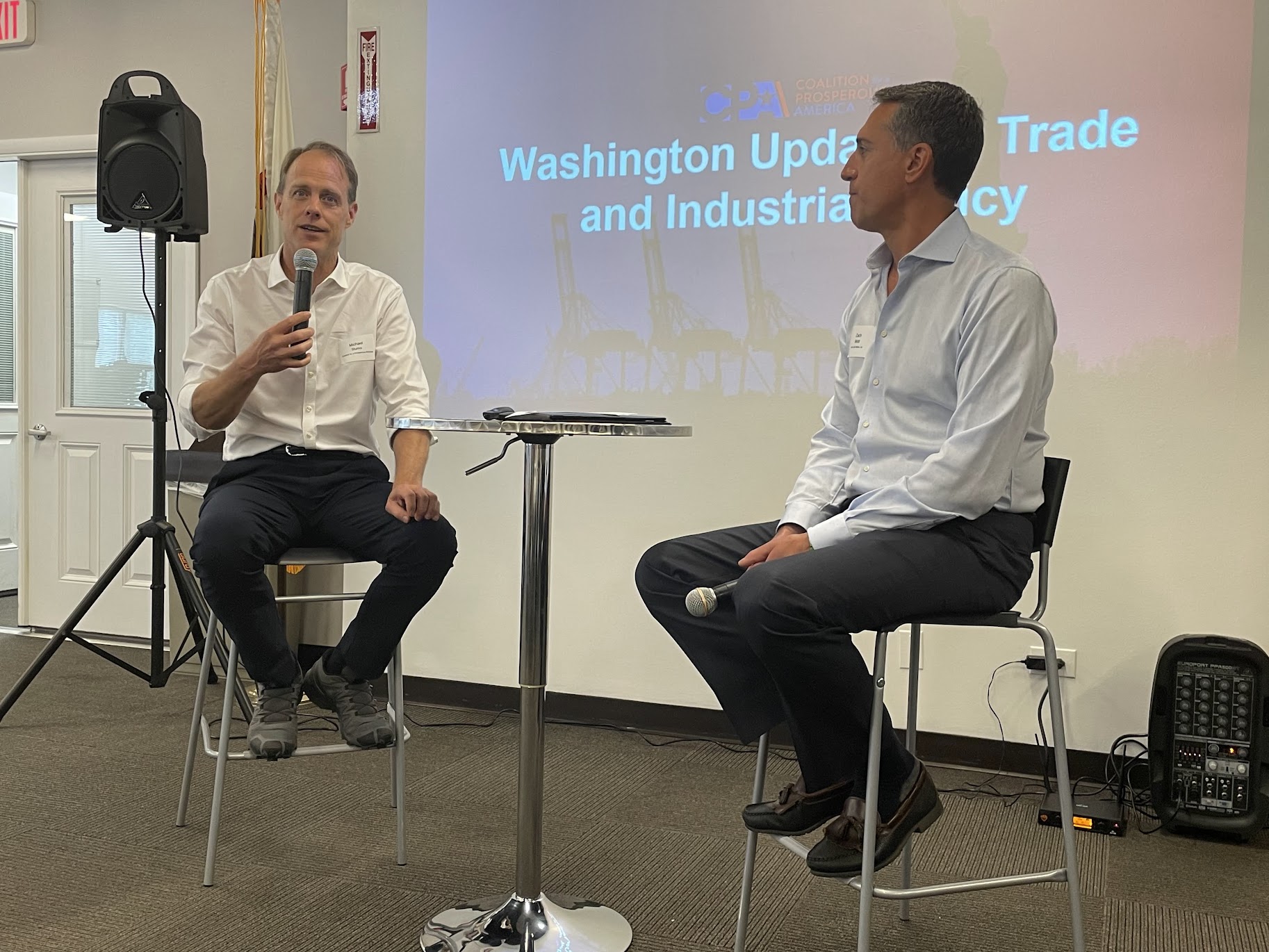Producing is the way America’s forefathers saw as the most efficient way to build a healthy national economy. Unless America moves back into producing more than it takes in from other countries, the US economy will continue to struggle.
That’s a brief synopsis of what Michael Stumo, CEO of Coalition for a Prosperous America, told small and midsized manufacturers gathered at the Technology & Manufacturing Association Thursday.
During COVID, when supply chains took a deep pause from full activity, Americans felt an urgent need to return production back to the US. At the time it was most noticed when disposable masks and prescription meds were difficult to find.
As in the rule of “supply and demand,” the prices skyrocketed until the needed medical supplies were replenished – for the most part, from far beyond America’s borders.
America currently consumes more than any other nation in the world. China is more than willing to export their products to a nation whose citizens want and can afford to buy almost anything. Other nations, including India, Germany and Japan are anxious to join in meeting the growing demand.
“We are the market that matters and and so when we want to do trade deals, we don’t need to give a single thing,” Stumo told the crowd. “In fact, we should raise our tariffs. They want to sell into our market.”
In the past several decades, China stepped up its manufacturing and the United States’ manufacturing diminished. With the job loss, job quality has gone downhill. Service jobs in hospitality, health care and tourism have grown in contrast, but those wages and benefits do not compare with those in productive industries such as machining, mold making, and die making.
Dependency on foreign governments for essential needs is a threat to America’s national security, Zach Mottl, CFO of Atlas Tool Works, and Chairman of CPA’s Board of Directors.
Stumo agreed.
“I think we are in a Cold War, and we should be decoupling or disentangling or something like that. But we are funding China’s rise,” he said, “And we have the power to stop.”
The discussion turned to solutions, and Stumo said he was optimistic about the future because more and more in Washington DC are beginning to understand the need to change things drastically.
“At the national level, there are some big, good things that will happen. We are going to have more wins in the next few years,” Stumo said.
“We just saw the world’s turning our way and we’re helping it,” Mottl added. “It’s going to be helpful to your industries when your customers are busier and are buying more here and are more incentivized to buy more here for the supply chains that fit in.”
More to come on the topic in TMANews.com.


